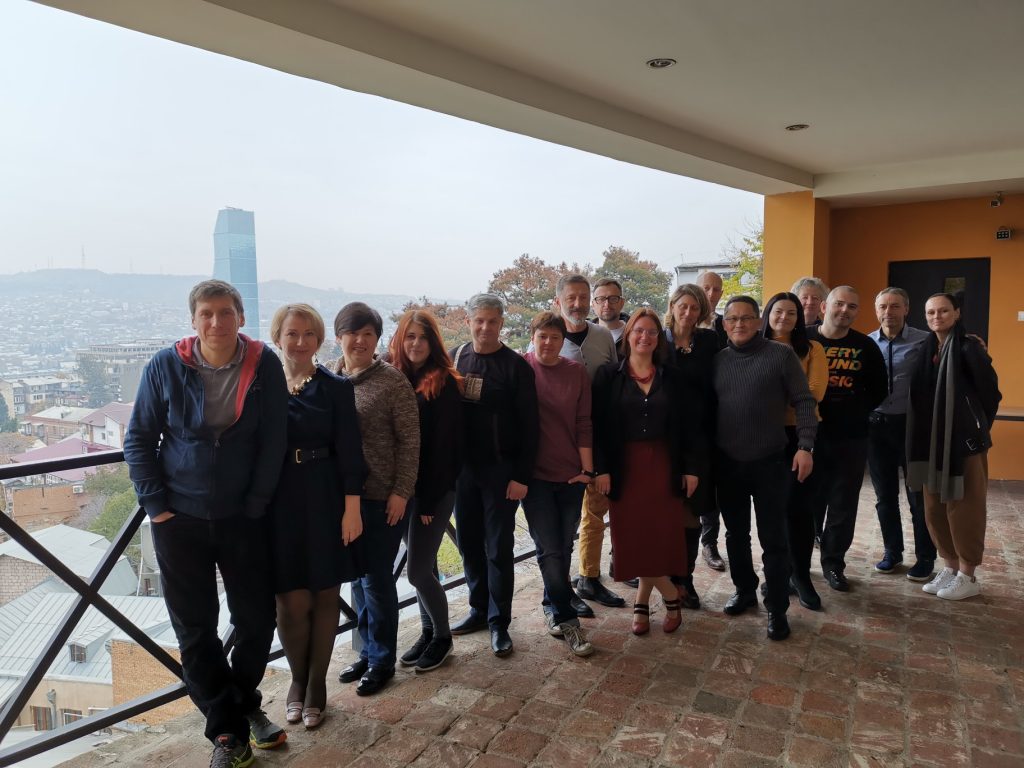In circumstances, when the states of Central and Eastern Europe and Central Asia (CEECA) fail to fulfill their commitments of transition to domestic funding, and, also, they toughen the repressiveness of drug policies, much depends on the effectiveness of regional advocacy.
At the annual meeting of the EHRA Steering Committee and Advisory Board held in Tbilisi from November 26 to 28, the discussion focused on the advocacy priorities of the organization for the next 5 years. In the course of the meeting, the strategy of the organization, developed by the Steering Committee in consultations with the EHRA members and partners, was finalized.
“For me, as a facilitator of this meeting, it was important to speak openly about the problems, as well as effective ways to solve them. We discussed the work done in the context of achievements and challenges that affect our performance and risks – how and by what methods we can influence their minimization. But most importantly, we discussed and recommended to the general meeting the EHRA the Strategy for 2020-2024. I hope that it reflects the ideas, recommendations, and needs of our members,” says Marina Choheli, Chair of the EHRA Steering Committee.
The keenest and most heated was the discussion of joint actions of the EHRA aimed at ensuring security in response to the recent legal initiatives of the Russian Federation, which could negatively affect not only the work of harm reduction organizations in this country but also in other countries of the region.
“The reason for this was already well-known Russian bill on drug propaganda, for which the state promises criminal liability and rather long terms of imprisonment, as well as other threats to members of the Association,” – says Alexander Levin, Co-Chair of the Steering Committee of the EHRA. “Since people who use drugs remain the most vulnerable, stigmatized and persecuted group today, and judging by recent events, repressions are only gaining momentum, we should have a clear position on what is going on and, more importantly, a system of actions that will allow remaining safe in case of a threat to the EHRA members, who, due to their activism and activities, are the first to be hit.”
“The importance of the meeting in Tbilisi is undeniable. It became a kind of a studio where we were giving the finishing touches to fashion the image of the Association, taking into account all the experience that it already has. All these will determine the external profile, character, and intonations of the EHRA for the very near future. ”
Programs and a system of support for communities, new challenges for the sustainability of harm reduction in Southeast Europe, the Caucasus, Central Asia, and the Baltic countries are all very different, but we need to take common actions. Our effectiveness depends on how we use the best international experience and build partnerships. Therefore, we are especially grateful for the time, effort, and world-class expertise to the members of the EHRA Advisory Council, dear Pavel Bem, Monique Middelhoff, and Peter Muyshondt, who took an active part in the meeting.
The Association is already becoming a powerful mouthpiece of the interests and needs of the region in the world. And judging by the results of the meeting, it is not going to stop there. Good luck to us in this difficult way!

